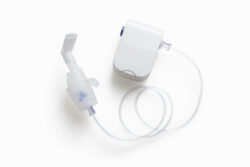Hernia Mesh Lawsuit: 2023 Settlement Updates & Top Lawyers
As the adage goes, "Forewarned is forearmed." This article delves into the world of hernia mesh lawsuits, providing updates on 2023 settlements and highlighting top lawyers in this legal arena. We explore the multifaceted landscape of hernia mesh litigation, including eligibility criteria, filing procedures, and potential outcomes. This comprehensive overview serves as a crucial guide for those affected by hernia mesh complications, equipping them with the necessary knowledge to navigate this complex legal field.

Key Takeaways
- There are several active hernia mesh lawsuits and ongoing trials, with manufacturers either settling confidentially or facing trials.
- The Hernia Mesh Multidistrict Litigation (MDL) combines similar lawsuits against the same defendant, resulting in shared legal costs and lower fees for plaintiffs.
- Reasons for filing hernia mesh lawsuits include claims of failed hernia mesh leading to severe injuries, allegations of defective product design and labeling, and malpractice committed by the implanting doctor.
- Complications of hernia mesh surgery can include adhesion, bowel obstruction, groin or testicular pain, infection, and mesh failure, among others.
Understanding Hernia Mesh and Its Purpose
Frequently used in hernia repair surgeries, hernia mesh is a medical device designed to provide additional support to weakened or damaged tissue. The benefits of hernia mesh surgery are manifold. It not only aids in the reinforcement of the hernia repair but also reduces the rate of hernia recurrence significantly. The mesh, acting as a scaffold, allows for new tissue growth and eventually integrates into the surrounding area. However, some patients may prefer or require alternatives to hernia mesh. These alternatives include sutures or stitches, which close the hernia defect without the use of a mesh. Another option is the Shouldice repair, a tension-free method that uses a patient's own tissue to repair the defect. These alternatives, while effective, may present a higher risk of hernia recurrence.
The Role of Hernia Mesh in Medical Treatments
Utilized extensively in medical treatments, hernia mesh plays a critical role in providing support to damaged or weakened tissues during hernia repair surgeries. It offers substantial pros such as reduced risk of hernia recurrence and shorter recovery time. However, potential cons include complications like adhesion, infection, and organ perforation, leading to lawsuits against manufacturers. Therefore, understanding the pros and cons of hernia mesh in surgical procedures is crucial. Simultaneously, considering alternative treatments to hernia mesh for hernia repair is pertinent. These may include traditional suture methods or laparoscopic techniques that carry their own set of pros and cons. As science advances, medical professionals continue to weigh the benefits and drawbacks of these options to ensure patient safety and optimal treatment outcomes.
The Surge in Hernia Mesh Lawsuits: A Brief History
In the realm of medical litigation, there has been a notable surge in hernia mesh lawsuits over the past decade, indicative of greater scrutiny surrounding the safety and efficacy of these surgical implants. This trend marks a significant chapter in the history of hernia mesh lawsuits. The impact of hernia mesh lawsuits on the medical industry has been profound, prompting a critical re-evaluation of medical devices and their potential risks. Many lawsuits arose from allegations of defective products resulting in severe complications, leading to an increased demand for accountability from manufacturers. This surge has not only highlighted the need for more rigorous safety standards but has also instigated significant changes in the legal landscape, propelling the industry towards greater transparency and patient safety.
Key Updates on Current Hernia Mesh Lawsuits
The litigation landscape of hernia mesh lawsuits has seen considerable changes in recent years, with several key updates having significant implications for both plaintiffs and defendants. Amid these changes, recent legal developments have brought about a surge in lawsuits against hernia mesh manufacturers, with claims focusing on defective product design and manufacturing errors. The potential future outcomes of these lawsuits remain uncertain, considering the complex nature of the litigation and the variables involved. However, ongoing trials and confidential settlements indicate a trend towards holding manufacturers accountable. With bellwether trials rescheduled for October 2023, these lawsuits are set to shape the legal discourse around hernia mesh complications, potentially influencing global settlement negotiations and future litigation strategies.
A Deep Dive Into Hernia Mesh Multidistrict Litigation (Mdl)
Understanding the intricacies of hernia mesh multidistrict litigation (MDL) is crucial for potential plaintiffs. This section delves into its specifics, including its advantages, the current status of hernia mesh MDLs, and how they differ from class-action lawsuits. MDLs consolidate similar lawsuits against the same defendant, offering shared legal costs and lower fees for plaintiffs. This differs significantly from class-action lawsuits, where one lawsuit represents a large group of people. The MDL lawsuit progress has seen a rise in the number of pending hernia mesh lawsuits. This has not only increased the legal pressure on manufacturers but significantly impacted the healthcare industry, raising questions about the safety and efficacy of hernia mesh products. It's also prompting industry-wide changes in product development and testing procedures.
Common Grounds for Filing Hernia Mesh Lawsuits
Frequently, patients choose to file hernia mesh lawsuits on the basis of product liability claims, and these are often predicated on allegations of design defects, manufacturing errors, or inadequate warnings. Current hernia mesh lawsuit trends show a rising number of such cases, as more patients experience complications post-surgery. Legal challenges in hernia mesh cases often revolve around proving the direct link between the faulty mesh and the complications suffered by patients. This requires robust medical evidence and expert testimonials. Other grounds for lawsuits include failure of the mesh leading to additional surgeries, significant pain, and loss of quality of life. With the continuous evolution of law and medicine, these grounds remain critical in shaping the trajectory of hernia mesh-related litigation.
Potential Complications From Hernia Mesh Surgeries
While hernia mesh surgeries often provide relief and a resolution to hernia-related issues, they can also, unfortunately, lead to a series of potential complications that can be debilitating for patients. A thorough complications assessment is crucial to identify issues such as mesh infection, migration, or failure which could result in chronic pain, bowel obstruction, or even hernia recurrence. The long-term effects of these complications can significantly impact a patient's quality of life, necessitating additional surgeries and prolonged medical treatment. Adhesion, or internal scarring, is another serious complication that can cause organs to stick together, leading to severe pain and potential organ damage. It is these potential complications that form the basis of numerous hernia mesh lawsuits.
How to Determine Your Eligibility for a Hernia Mesh Lawsuit
If you have undergone a hernia mesh surgery and experienced severe complications afterwards, you may be eligible to join a hernia mesh lawsuit. Eligibility typically depends on the type of hernia you had, the nature of the surgery complications, and whether alternative treatments were considered before opting for mesh use. You may be eligible if your complications necessitated additional surgeries or led to significant health problems. It's crucial to have detailed documentation about your hernia, the mesh used, and the aftermath of the surgery. Consulting with a seasoned attorney can help clarify your eligibility. Such professionals are adept at navigating complex litigation landscapes, including determining the specifics of your case and assessing the potential for a successful lawsuit.
Crucial Information Required for Filing a Hernia Mesh Lawsuit
In the process of filing a hernia mesh lawsuit, it is essential to gather certain critical information that will form the foundation of your legal claim. Key details include the brand and manufacturer of the mesh implant, dates of surgeries, and if possible, the preservation of the old mesh. Understanding potential complications associated with hernia mesh surgery such as adhesion, infection, and organ perforation, among others, is crucial as these form the basis of your allegations. Additionally, it's necessary to meet the eligibility requirements including the date of your original hernia repair surgery, the recommendation for additional surgery due to complications, and the occurrence of serious injuries more than 30 days from the original surgery.
Hernia Mesh Lawsuit Verdicts and Settlements: Past and Present
Numerous hernia mesh lawsuit verdicts and settlements over the years have significantly impacted the legal landscape, setting precedents for present and future cases. Past settlement amounts have ranged widely, reflecting the diverse severity of injuries and complications experienced by plaintiffs. These amounts have set a benchmark for current settlement negotiations. The process of determining appropriate compensation is complex, encompassing factors such as the degree of physical suffering, the extent of medical expenses, and the impact on the plaintiff's quality of life. As of now, multiple lawsuits remain active, with legal teams engaged in vigorous settlement negotiations. The outcomes of these discussions will continue to shape the evolving landscape of hernia mesh litigation.
How to Choose the Right Hernia Mesh Lawyer for Your Case
Selecting the right hernia mesh lawyer for your case involves careful consideration of their experience, track record, and expertise in handling similar lawsuits. Finding the right legal representation is crucial as it can significantly influence the outcome of your case. You should thoroughly research potential lawyers, evaluating the success rate of hernia mesh lawsuits they've handled. Look for a lawyer with a strong track record in these specific cases, and who can demonstrate comprehensive understanding of the nuances involved. Consider their reputation, responsiveness, and the level of personal attention they are able to provide. Remember, your lawyer should be someone who instills confidence, communicates effectively, and has the resources and expertise to fight for your rights effectively.
Traits of Top Hernia Mesh Lawyers
How do top hernia mesh lawyers distinguish themselves in the field of medical litigation? Primarily, their expertise extends beyond basic attorney selection, immersing into successful case strategies tailored to hernia mesh lawsuits. These attorneys exhibit profound knowledge of medical terminologies, product liability laws, and the ability to handle complex scientific evidence. They typically have a strong track record of securing favorable settlements or verdicts for their clients. Furthermore, their negotiation skills often result in substantial compensation for victims of defective hernia mesh. Proven experience handling mass torts and multidistrict litigations is another distinguishing trait. Finally, top hernia mesh lawyers prioritize client communication, ensuring individuals understand each step of their legal journey. In essence, their skills, experience, and dedication play pivotal roles in championing for victims' rights.
The Role of Legal Counsel in Hernia Mesh Lawsuits
In the multifaceted world of hernia mesh lawsuits, the role of legal counsel is of paramount importance, providing both guidance and representation to plaintiffs navigating the complexities of the legal process. Legal counsel shoulders the responsibility of investigating the claim, gathering and preserving the importance of evidence, and developing a persuasive argument for the court. They also assist in determining the value of the claim, based on the severity of the complications and the impact on the plaintiff's life. Notably, their role extends to negotiating settlements with the defendant's legal team or presenting the case at trial if a fair settlement cannot be reached. Thus, the role of legal counsel is vital in successfully securing justice for victims of faulty hernia mesh implants.
What to Expect When Filing a Hernia Mesh Lawsuit
Undoubtedly, filing a hernia mesh lawsuit can be a complex process, but with the right guidance, it becomes manageable and often leads to significant compensation for the damages suffered. The legal process begins with case evaluation, wherein your lawyer determines the validity of your claims. Thereafter, a formal complaint is prepared and filed. The pre-trial phase involves evidence discovery, where both parties gather supportive information. Settlement discussions may occur during this stage. If no agreement is reached, the case proceeds to trial. Finally, a verdict or settlement decides the potential compensation. Keep in mind that depending on the complexity, the legal process can take months or even years. However, its conclusion can provide necessary financial relief and justice for victims.
The Future of Hernia Mesh Lawsuits: 2023 and Beyond
Looking towards the future of hernia mesh lawsuits, 2023 and beyond promise to bring significant developments, marked by a rising number of claims and evolving legal precedents. Future trends indicate a growth in litigation, driven by emerging complications from hernia mesh surgeries. Legal professionals predict a surge in the number of patients seeking justice, as awareness of mesh-related issues increases. New case laws are also anticipated to reshape the landscape of hernia mesh litigation. These lawsuits will continue to shine a spotlight on manufacturers' accountability and product safety. While the journey to justice may be long and complex, the future holds promise for victims of hernia mesh complications. The year 2023 and beyond are set to be pivotal in the ongoing fight for justice in hernia mesh lawsuits.
Frequently Asked Questions
What Is the Average Duration of a Hernia Mesh Lawsuit From Filing to Resolution?
Lawsuit timelines for hernia mesh cases vary significantly based on specific circumstances. On average, these lawsuits can take 1-3 years from filing to resolution. Factors influencing duration include the complexity of the case, the number of litigants, and court schedules. Settlement amounts also differ greatly, being influenced by the extent of injuries, financial losses and the specific mesh manufacturer involved. Accurate predictions are difficult due to these variables.
Are There Any Alternative Treatments to Hernia Mesh Implants That Are Safer or Less Prone to Complications?
Mesh Alternatives Advancements have introduced suture repair and biologic tissue matrices as safer hernia treatment options. Suture repair, though simpler, may have higher recurrence rates. Biologic tissue matrices, derived from human, bovine, or porcine sources, minimize foreign body reaction, reducing complications. However, they are costly and may not be optimal for all patients. Complication Prevention Techniques include careful patient selection, proper surgical technique, and diligent post-operative care, which are crucial to successful hernia treatment.
How Does the Legal Process Differ for International Claimants in Hernia Mesh Lawsuits?
The legal process for international claimants in hernia mesh lawsuits can differ due to varying legal systems, regulations, and procedures. Factors such as claimant eligibility and international jurisdictions play a crucial role. While the alleged harm may be similar, distinct laws govern product liability and compensation claims across different countries. Hence, international claimants often need legal representation versed in both their own country's laws and those of the jurisdiction where the lawsuit is filed.
How Are the Legal Fees Structured in Hernia Mesh Lawsuits and When Are They Due?
In hernia mesh lawsuits, legal fees are typically structured on a contingency basis, ensuring fee transparency for claimants. This means lawyers are only paid if they win the case or achieve a settlement. Payment timelines vary, but fees are generally due when the claimant receives their settlement or court-awarded damages. This arrangement alleviates upfront costs for the claimant, making legal representation more accessible.
Can a Hernia Mesh Lawsuit Be Filed if the Manufacturer of the Mesh Is No Longer in Business or Has Filed for Bankruptcy?
Yes, a hernia mesh lawsuit can still be filed even if the manufacturer has gone out of business or declared bankruptcy. The bankruptcy court often establishes a trust fund to compensate for claims against defunct companies. Bankruptcy implications can make the process more complex, thus it's crucial to seek legal assistance experienced in dealing with claims against bankrupt or defunct manufacturers to navigate these complexities and fight for rightful compensation.
Conclusion
In conclusion, the complexities of hernia mesh lawsuits necessitate an astute legal counsel with an impressive track record. The escalating tide of these lawsuits, coupled with the intricacies of MDL, further underscore this need. The future landscape of hernia mesh lawsuits in 2023 and beyond is anticipated to be equally challenging, making it imperative for affected individuals to arm themselves with comprehensive knowledge and competent legal representation.

This post has been generated by AI and was not reviewed by editors. This is Not legal advice. Please consult with an attorney.




